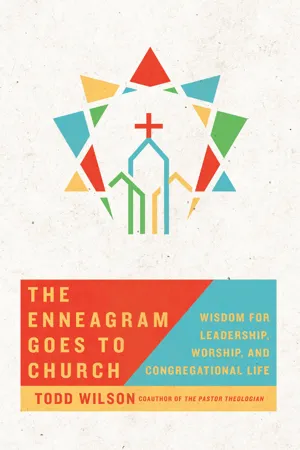If you’re driving north on North Washington Street in Wheaton, Illinois, you will come to College Avenue, and if at the intersection you look to your left, you will see the historic College Church, where I spent many happy years as a student, an intern, and an associate pastor. But if you turn your gaze to the right, you will enjoy a panoramic view of the campus of my beloved alma mater, Wheaton College.
About twenty yards from the intersection of North Washington Street and College Avenue you will see a large, prominently displayed stone structure set against the backdrop of the front lawn of the college campus as it lazily meanders down from Blanchard Hall. On it is inscribed the college’s sacred motto—For Christ and His Kingdom.
Visiting the campus, you can’t miss the sign. Its imposing, unchallenged position on the southwest corner of the campus no doubt does just what its designers intended. It announces to visitors as well as reminds residents that this is what the college is all about—its reason for existence, its mission. A liberal arts college where everything is refracted through Christ.
And yet those who have spent time on campus as students, staff, or faculty are let in on a little secret. There is another catchphrase that has perhaps an even greater influence on the educational experience at Wheaton College.
All truth is God’s truth.
Famed Christian philosopher and longtime Wheaton College faculty member Dr. Arthur Holmes is responsible for injecting this Augustinian phrase into the bloodstream of Christian colleges around the country, so that now the concept is a given in Christian higher education.
What does it mean?
In simplest terms, “All truth is God’s truth” means that truth is truth—no matter who says it or where you find it. If it’s true, then it doesn’t matter if it was a Christian or a non-Christian, your Sunday school teacher or a secular atheist who said it. It’s still true. And because it’s true, it belongs to God. Because all truth is, quite literally, God’s truth. He owns every square inch.
How is that possible?
“Todd, do you mean to tell me that it doesn’t matter if Jay-Z or Rick Warren, Bill Gates or Beth Moore, the Dali Lama or David Platt says it, there’s no difference when it comes to truth? It doesn’t matter who says it, it’s still true?”
Yes, that’s right.
Check it out. As Christians, we affirm that truth is one. There is a unity to truth. It’s not plural but singular. All truth, wherever you find it in this big world, is God’s truth and ultimately originates from the mind of God. If it is truly true, then truth reflects the mind of God—which is one, not many.
Okay. But let’s get concrete.
Think of it this way. It doesn’t matter whether the truth is an observation of science, an insight from a literary classic, or a formula from the realm of mathematics; if it is true, then that sliver of truth—regardless of its significance—belongs to the single fabric of truth, whose sum and content is woven together by the hand of God. In other words, all truth is God’s truth.
As an undergraduate at Wheaton, I studied philosophy. It was a fabulous major because it introduced me to some of the greatest minds of the Western tradition, luminaries such as Plato and Aristotle, Augustine and Aquinas, Descartes and Hume, Kierkegaard and Kant.
Of course, not all these thinkers were Christians. Some were, but many weren’t. A few, in fact, were openly hostile to the Christian faith, such as the British skeptic David Hume, the Dutch rationalist Baruch Spinoza, and the infamous German atheist Friedrich Nietzsche.
And yet they and many others had both profound and profoundly true things to say. This is not to imply that what they said was somehow inspired by God, at least not in the way we tend to think about inspiration. I only mean that they—even the most aggressively anti-Christian among them—had access to truth in God’s world through the use of their God-given minds, so that when they said something true, they were rightly describing reality as we know it—and as God knows it.
Perhaps you’re having trouble getting your head around all of this. That’s okay. I, too, had a hard time wrapping my brain around the liberating fact that all truth is God’s truth.
Let me share a story that began to drive this home for me.
During my freshman year at Wheaton, I took an advanced philosophy course titled “Faith and Reason.” The course explored the fascinating interface between, well, faith and reason. What do we know by faith and only by faith, and what do we know by reason without the aid of faith? These were the kinds of questions we grappled with for an entire semester.
Since I was only a second-semester freshman, I hadn’t yet digested Wheaton’s educational philosophy, which meant that from time to time I would find myself gagging on a point or two in a professor’s lecture. It happened, most memorably, in my “Faith and Reason” class.
I can’t remember what precisely the professor was talking about, but I do remember the thought suddenly occurring to me—as though it were an insight from the heavens—that many of the philosophers we studied weren’t even Christian. We were studiously reading their scholarly tomes, but they weren’t even eligible for admission to Wheaton College.
“What gives?” I thought to myself. “Why are we reading these folks anyway? Can’t we focus the curriculum on the sympathetic Christian voices? Surely, there are plenty to choose from.”
So I decided to press my professor on this line of argument. I framed my question as forcefully as I could and even quoted Jesus’ famous dictum, “A healthy tree cannot bear bad fruit, nor can a diseased tree bear good fruit” (Mt 7:18).
To my mind, this was a simple open-and-shut case—with Scripture backing me up. Only Christians (namely, healthy trees) can bear good fruit (that is, true ideas). Ergo, I thought, non-Christians, like Nietzsche, Hume, and Spinoza, can only bear bad fruit (that is, untrue ideas).
“Isn’t that right, Professor?” I asked.
I can’t recall exactly what he said in response. What I do vividly remember is the look on his face as he answered. He was dumbfounded, unsure of whether it was even a serious and sincere question. Imagine telling the president of the Flat Earth Society that this lovely place we call home is actually quite spherical. He would be beyond disbelief, horrified even.
Something like that was on the face of this shaken professor. No doubt he was wondering how I was even granted admission to the college or how I’d spent nearly six months on campus without picking up on the fact that all truth is God’s truth. Of course, I mean this as no discredit to this particular professor. He was excellent in many ways, and in the end, he patiently fielded my question with an answer that shed a lot of light and only a little heat.
But why do I tell you this?
Because some people are anxious about the Enneagram going to church. They’re anxious about it just like I, as an earnest Christian, was anxious about devoting so much time to learning the philosophy of Hume, Spinoza, or Nietzsche, especially in a Christian college of all places. Some of the critics and skeptics of the Enneagram feel similarly. Understandably so.
Not too long ago, a good friend of mine tweeted that the Enneagram is—catch this—“a horoscope for intellectuals.”
Ouch. That hurts.
Others, however, have voiced their worries about the Enneagram in less pithy, more potent ways. They’ve taken to pen and paper—or, at least, they’ve penned some blog posts—to caution their fellow Christians about too quickly jumping on the Enneagram bandwagon.
“There are,” they insist, “reasons for concern.”
What are these? There are several. But the main concern is this: the Enneagram isn’t Christian. Some worry that if the Enneagram goes to church, and if it captures the attention of Christians, it will foster sub-Christian ways of thinking. Its presence in the pews will only encourage Christians to enthuse about wings, arrows, and subtypes rather than baptism, Communion, or prayer. And this will only accelerate the triumph of the therapeutic.
I must confess, I resonate with this basic concern. I don’t want to sound like a grumpy old man, but, to be honest, the last thing most American Christians need is another fad to fixate on, especially if it is not helpful in promoting the love of God and neighbor. The American church surely doesn’t need one more reason to be distracted from making disciples and serving our communities. We need all the help we can get to live more like Jesus.
Can I get an amen?
It’s true. I worry that if the Enneagram goes to church, it may hinder rather than help ordinary Christians to live their faith in richly biblical ways. I worry that some Christians may become more enamored with personality types than with the perseverance of the saints, more excited about where they go in stress and security than about their eternal destinies, and more interested in the subtleties of Triads and Stances than in the mysteries of the Trinity and incarnation.
So, I ask you—and I ask myself—a very serious question. Do we really want the Enneagram to go to church?
It is, indeed, a serious question, and it deserves to be taken seriously. We cannot simply assume that Christians—much less pastors and church leaders—can invite the Enneagram to go to church without any fuss or without asking any hard questions. That would be at best naive and unthinking; worse yet, it could prove spiritually deleterious and even dangerous.
If we’re going to benefit from the wisdom of the Enneagram, and if we’re going to share its wisdom with others in our churches, then we need to think about the Enneagram in a responsible way, which is to say, in a decidedly Christian way.
But with something like the Enneagram, is that even possible? Let’s not forget that the Enneagram’s origins are shrouded in mystery, and its contemporary development is heavily indebted to occultist thinkers such as George I. Gurdjieff, Óscar Ichazo, and Claudio Naranjo. Is it just too spiritually sullied to be all that useful for serious Christians?
More to the point, is there a Christian approach to the Enneagram? If so, what might that look like? How would we develop such an approach? Where would we even begin?
THE ENNEAGRAM AS A WISDOM TRADITION
If we want to develop a Christian approach to the Enneagram, a good place to start is with the idea of wisdom. In fact, it’s helpful to ...

